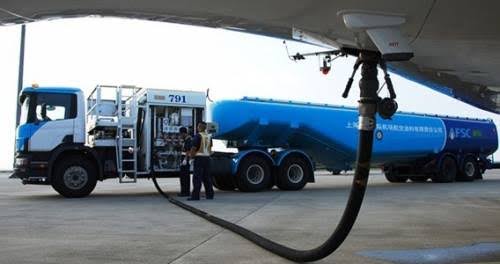Marketers of Jet-A1, popularly called aviation fuel, under the aegis of Aviation Fuel Marketers Association of Nigeria (AFMAN), have expressed concern over what they termed interference in activities relating to Jet-A1, particularly the price at which the product is being sold to airlines.
This is even as they have called government’s attention to the fact that the product remains deregulated and susceptible to the forces of demand and supply.
Secretary-General of the association, John Abegunde, stated this at the Federal Airports Authority of Nigeria (FAAN) National Aviation Conference (FNAC) in Abuja.
The National Assembly, the Nigerian National Petroleum Corporation (NNPC) and the Central Bank of Nigeria (CBN) had recently intervened to force a temporary reversal from the N700 to N580/litre price of the commodity, following a threat by airlines’ to shut down operations.
The airline operators had said that aviation fuel now accounts for between 30 to 40 per cent of operating cost in aviation and is unsustainable for the scheduled carriers.
Speaker of the House of Representatives, Femi Gbajabiamila, during the mediation, said the shutdown of airline operations had the potential to shut down the government, hence the stakeholder intervention.
But Abegunde said it was about time government hands off from all commercial-related issues between airlines and marketers, in line with the spirit of deregulation.
According to him, the marketers were as well faced with numerous challenges that include the availability of the product to supply to the airlines, uncompetitive price, logistic hiccups in transporting the product and inequality in standard operating practices – all of which rob-off on the pump price.
Abegunde added that the industry and its investors would be better off if regulators focused more on having a stringent aviation fueling requirement and harmonised oversight responsibilities to ensure quality.
“FAAN too should watch out for portfolio and unlicensed suppliers to discourage racketeering and black-market business of aviation fuel. Throughput? No! Joint ventures, yes! All parties should encourage joint ventures and have JV agreements. We should be wary of portfolio investors who come in when there are opportunities in the sub-sector but move out with their briefcases immediately after there are challenges. FAAN needs to review land lease arrangement and multiple charges as the volumes are no longer looking good to the initial business projection,” he added.









